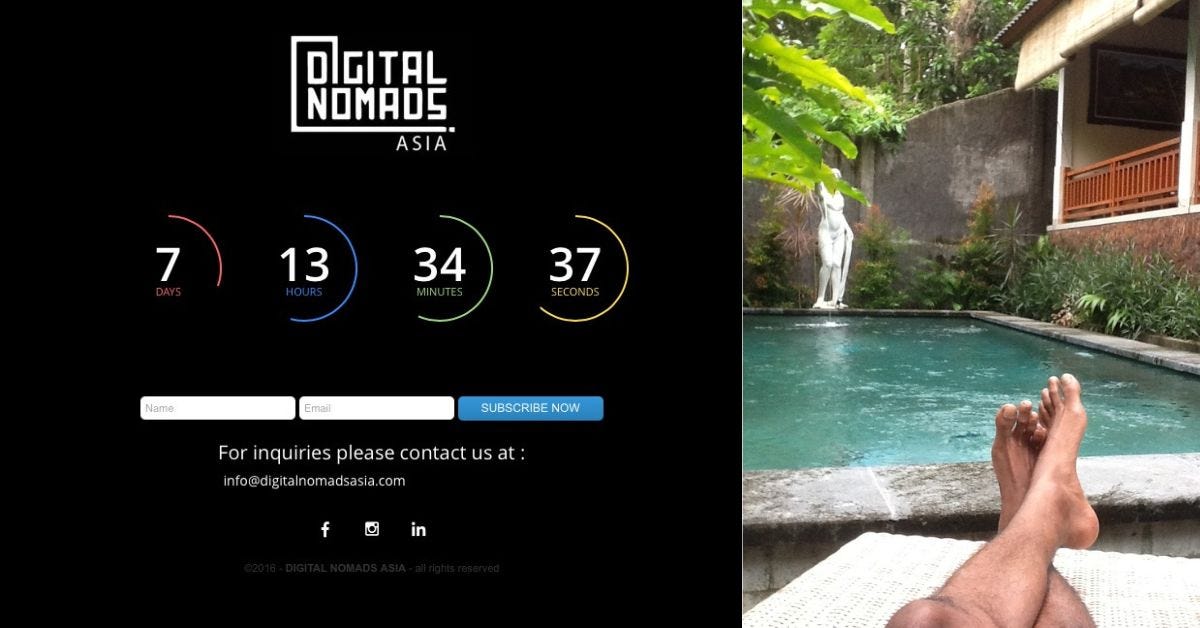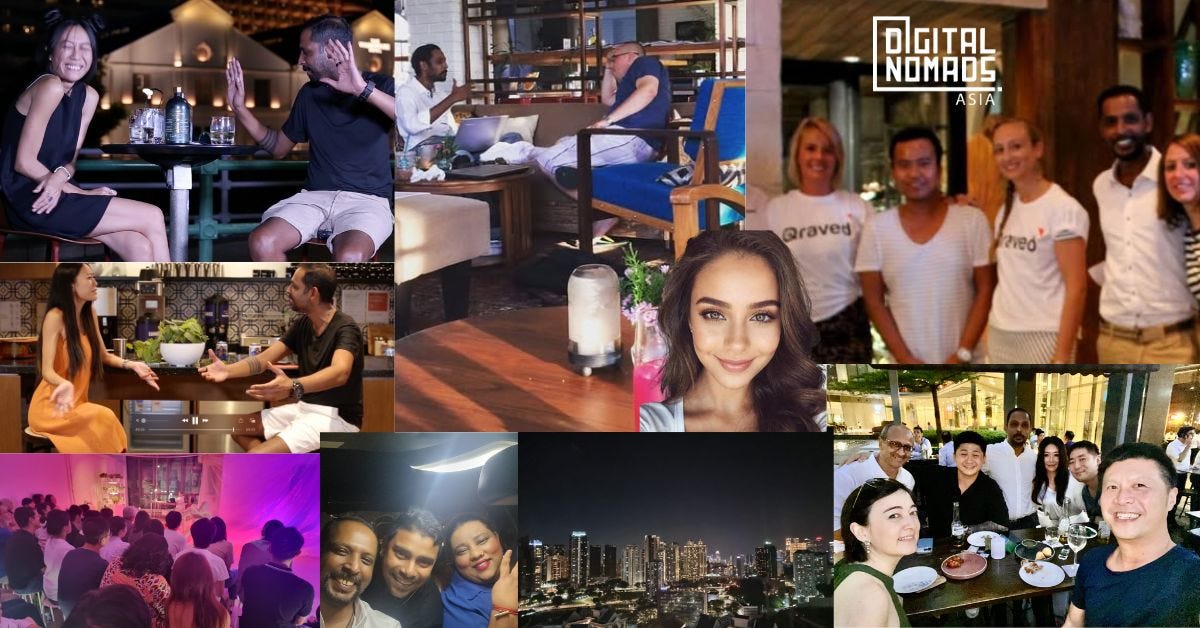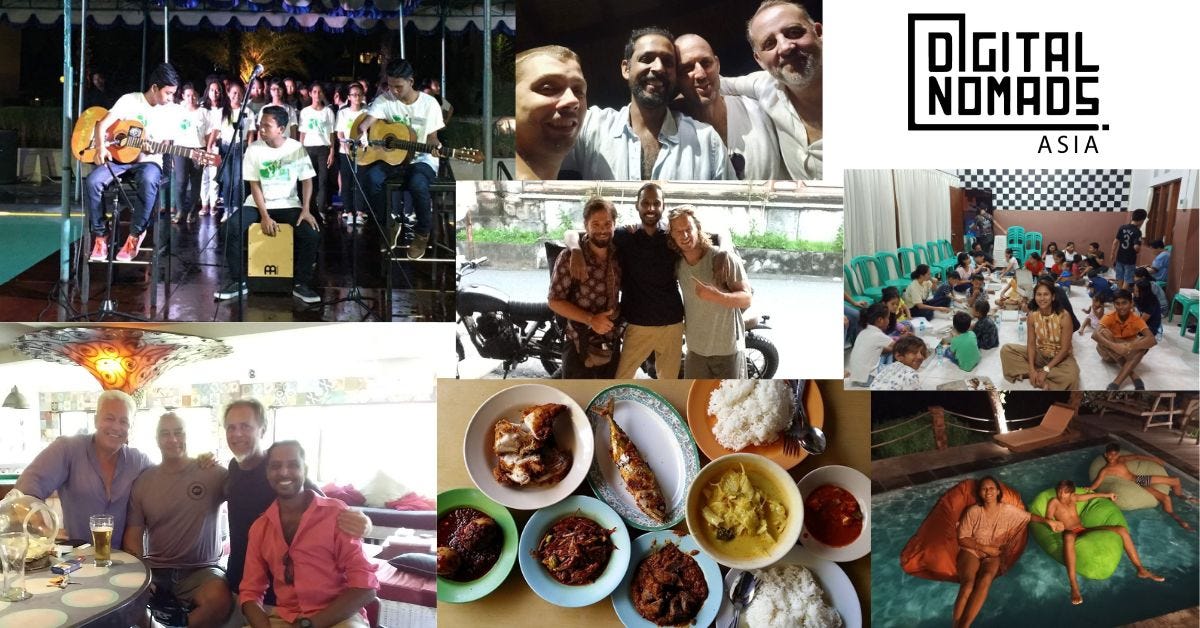The Nomad’s Paradox - How Building a Borderless Brand Rooted Me in Purpose
How creating Digital Nomads Asia taught me that true connection doesn’t need a fixed address.
I set out to build freedom.
Freedom from the 9-to-5.
Freedom from traffic lights and tight suits.
Freedom to choose my mornings, my tribe, my timezone.
But somewhere between a half-built bar in Bali and a breakfast in Bangkok with strangers who became family, I stumbled upon something I wasn’t searching for:
Purpose.
And it’s funny, because purpose is usually something people find in rootedness—in routine, in roles, in responsibilities. But for me, it came on the road.
It came through Wi-Fi that cut out during pitch calls, late-night brainstorms in co-working spaces with ocean views, and watching people light up when they realised they weren’t alone.
That’s the paradox.
We think being a nomad is about leaving things behind.
But for me, it was about finding the thing that stays.
Branding in Flip-Flops
When I founded Digital Nomads Asia, it wasn’t a calculated brand launch. It was a response.
To loneliness.
To fragmentation.
To that gnawing feeling that maybe this lifestyle we’d chosen wasn’t as glamorous—or as connected—as Instagram made it out to be.
I didn’t need a logo. I needed belonging.
And so did everyone else.
We didn’t build Digital Nomads Asia with a brand book. We built it through group chats, meetups, visa runs, and shared playlists.
The community came before the campaigns.
And that, ironically, became the brand.
Leadership Without the Title
Leading a community like this forces you to unlearn everything you thought you knew about leadership.
You’re not the boss.
You’re the glue.
You’re the person people trust when the Wi-Fi drops, the payment fails, or someone’s having a mental breakdown in a villa in Canggu.
Leadership here isn’t about control—it’s about consistency.
It’s not about hierarchy—it’s about holding space.
The best thing I ever did as a “leader” was to step back and let others step in.
We weren’t building an empire. We were building an ecosystem.
Marketing with Skin in the Game
Traditional marketers talk about “knowing your audience.”
I wasn’t just marketing to them. I was them.
I lived in the same cafes. I took the same red-eye flights. I battled the same questions:
What’s next? Where do I go? Who do I trust?
So when I wrote copy, I wrote like I was talking to a friend at a hotel bar.
When I built campaigns, I built ones I’d actually want to be part of.
There was no agency.
There was just empathy.
The Irony of Belonging
Today, Digital Nomads Asia connects people across cities and islands, borders and belief systems.
It’s messy. It’s magical. It’s not perfect.But what we’ve built—what I’ve personally grown through—is a reminder that sometimes the most powerful brands aren’t the ones with the loudest slogans or slickest visuals.
They’re the ones that feel like home.
Even when home is constantly moving.
Final Thoughts
I wanted to build something borderless.
What I found was something grounding.
The Nomad’s Paradox is this:
When you stop chasing permanence and start chasing presence, you end up with something that lasts.
And maybe that’s the best kind of brand there is.
Signing of for 84 Musing,
Rukesh Varan,
Founder of Digital Nomads Asia and 84 Musing










